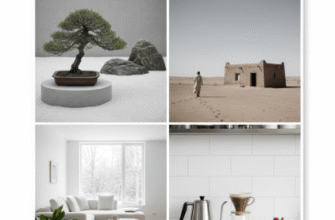Humanity is in a constant state of tug-of-war, a silent, persistent struggle fought not on battlefields, but in city halls, classrooms, and even within the confines of our own minds. It’s the age-old conflict between tradition and progress. On one side, we have the comforting weight of the past—the customs, beliefs, and structures that have guided generations. On the other, the relentless pull of the future—the siren song of innovation, change, and the tantalizing promise of a better tomorrow. This isn’t a simple battle of old versus new; it’s a deep, complex dance that defines who we are and where we’re going.
Tradition is the bedrock of society. It’s the invisible architecture that gives our communities shape and meaning. Think of it as the grammar of our collective existence; it provides the rules, the context, and the shared understanding that makes communication and cooperation possible. From family holiday rituals to national anthems, these inherited patterns provide a powerful sense of identity and belonging. They are anchors in the turbulent sea of life, connecting us to our ancestors and giving us a story to tell our descendants. To dismiss tradition as simply “the old way of doing things” is to miss its profound psychological and social importance. It offers stability in a world that often feels chaotic and rootless.
The Comfort of the Known
Why do we cling to tradition so fiercely? The answer lies deep within our psychology. Humans are creatures of habit who find safety in predictability. Traditions are, in essence, collective habits that have been tested and refined over time. They represent a kind of accumulated wisdom, a roadmap left by those who came before us. Following these paths feels safe because they are well-trodden. They relieve us of the cognitive burden of constantly reinventing every social norm, every moral code, and every form of celebration. This cultural inheritance provides a framework for life’s biggest moments—birth, marriage, death—giving them a significance that transcends the individual experience.
However, this sturdy anchor can easily become a dead weight. When tradition is followed blindly, it stifles growth and perpetuates injustice. A tradition that once served a vital purpose can become an empty ritual, or worse, an instrument of oppression. History is filled with examples of traditions—social hierarchies, discriminatory laws, harmful superstitions—that were defended fiercely simply because “it’s what we’ve always done.” The comfort of the known can morph into a fear of the unknown, creating a society that is resistant to necessary change and hostile to new ideas.
The Unstoppable March of Progress
Enter progress, the dynamic, disruptive force that refuses to let humanity stand still. Progress is fueled by curiosity, creativity, and the fundamental human desire to improve our condition. It’s the engine behind scientific discovery, technological innovation, artistic expression, and social evolution. While tradition provides roots, progress gives us wings. It is the force that gave us medicine to cure diseases our ancestors could only pray about, technology that connects us across continents in an instant, and philosophies that champion individual rights and freedoms unheard of centuries ago.
The spirit of progress challenges us to question everything. It asks, “Is there a better way?” This constant questioning is essential for growth. It forces us to re-examine our beliefs, dismantle unjust systems, and strive for a more equitable and prosperous future. To reject progress is to accept stagnation. It is to declare that we have learned all there is to learn and that the world as it is cannot be improved—a bleak and demonstrably false proposition.
Societies that successfully navigate this tension often treat tradition not as a rigid set of rules, but as a foundation upon which to build. They understand that progress without a connection to the past can feel hollow and disorienting. This adaptive approach allows for innovation and growth without sacrificing the core cultural identity that provides meaning and cohesion. It’s about evolving, not erasing.
The Perils of Unchecked Advancement
Yet, progress is not an unblemished hero. When pursued for its own sake, without wisdom or foresight, it can be incredibly destructive. The industrial revolution brought unprecedented wealth and convenience, but it also brought pollution and exploitation. The digital age has connected the world, but it has also created new avenues for misinformation and social isolation. Unfettered progress can sever our connection to nature, to our communities, and even to ourselves. It can create a world that is technologically advanced but spiritually impoverished, a society that moves at lightning speed but has no idea where it’s going.
The great challenge, then, is not to choose a side in this eternal conflict. It is to find the delicate balance between preserving the wisdom of the past and embracing the potential of the future. The most resilient and vibrant cultures are not those that cling rigidly to tradition or those that chase novelty at all costs. They are the ones that manage to weave the threads of the old and the new into a rich, evolving tapestry.
Finding the Synthesis
This synthesis requires a kind of societal wisdom. It means having the discernment to know which traditions are worth preserving and which have outlived their usefulness. It means guiding progress with a strong moral compass, ensuring that our innovations serve human values rather than undermining them. It’s about building a future that learns from the mistakes of the past without being chained to them.
On an individual level, we each participate in this dance. We decide which family traditions to carry on and which to adapt for our own children. We embrace new technologies that improve our lives while striving to maintain genuine human connection. We learn from history while working to create a more just future. The conflict between tradition and progress is not a problem to be solved, but a tension to be managed. It is the very engine of human civilization, pushing and pulling us towards a future that is forever being negotiated.








